Note: This post may contain affiliate links which means if you click on a link and purchase an item, we will receive an affiliate commission at no extra cost to you.
This is the fourth interview in a series featuring digital nomads talking about their lives and lessons (click here if you want to be interviewed). The goal is to help demystify the process of making money online, wandering the world, and living an unconventional life!
Annelise Lynch is a remote data engineer at Parsely who nomaded from 2016 to 2018. We met in Bali when I first started nomading back in early 2017 and we hiked a 12,000-foot volcano together!
I love and appreciate Annelise’s spirit. Her radical honesty and openness in this interview make this a great read!
Table of Contents
Introduce yourself! 🙂 Who are you?
I’m originally from the tiny town of Ashland, Virginia, and currently live in Boulder, Colorado.
Who am I? I describe myself as independent, adventurous, routine stickler, pragmatic, social, sanguine, and generally very smiley. The values that I identify with are honesty to self, honesty to others, integrity, humility, acceptance, pragmatism, and adaptability, and persistence. I’m a software engineer, a painter, a musician, a road biker, mountain biker, swimmer, skier, ashtanga yogi, and runner. I love and accept my omnipresent anxiety that has gotten me so far in life 🙂
What do you do for work? And what is your nomadic story?
I began nomading in October 2016 and ended my nomadic journey in June 2018. My journey started in Hawaii with my best friend’s wedding. I moved to Chiang Mai, Thailand which, at the time, was the nomad hub. I left my data engineering consulting job to begin freelancing as a small business analytics consultant and wanted to see how I could do on my own.
After a few months I realized I DID NOT like freelancing, I like building things and solving problems, the whole client acquisition and selling my brainpower part was uncomfortable. I decided if I was to do something like that again, I needed a partner that complemented my skills.
I applied to work as a part-time software engineer at Parse.ly and was hired (I did not want to work full-time US hours from Asia). This job ensured the rest of my nomadic journey as their engineering team was already fully remote! I moved from Chiang Mai to Koh Lanta then after my 90-day visa expired I went to India for a friend’s wedding. I intended to stay but found Goa difficult to navigate apartment hunting without a male companion, so I went to Bali, why not!
I spent one month living in Ubud, then moved to Canguu because I liked the coworking space better there. It was there that I accepted that I am not a beach person and am instead a full-on mountain person because instead of surfing I hiked every single volcano within sight of Bali: the two volcanos on Bali + Rinjani next door. After my visa ran out in Bali, I met my sister in Greece and we traveled to Italy too and then the Parse.ly company retreat met in Iceland!
I started working full-time for the company at this point. I stayed there for a bit after the retreat, but the food is too expensive to justify staying there for very long. So I headed to Brugge where my friend Hanne had a camper van that we were going to drive to Budapest. The camper van ended up being a no-go, and at that point, I had crossed too many time-zones in too short of time and was sleeping 4am-12pm every day and wasn’t feeling great, so I used some miles I had stored up and flew home to Charlottesville, VA for a few months.
Once rested, I moved to Lisbon, Portugal and then did not love my housing situation there so after a month I moved to Berlin because Portugal The Man had a concert there and that was a good enough reason for me. I loved Berlin, I almost stayed. It came down to: move to Berlin for 1 year or apply to Remote Year. Why? Because I was burned out on moving so frequently and searching for housing + coworking space + gym + good food every month.
I wanted to either stay put or have someone else do the housing + coworking space + flights for me. I had come across 2 amazing Remote Year groups in my travels, one in Chiang Mai and one in Lisbon. I found a program that started in South America for 6 months, then went to Europe, and ended in Cape Town. Most of the other programs included Asia (which I had already spent significant time in). I decided Berlin would always be there for me, and this program would not, so I joined the program, and flew home for a few months to rest again before heading to South America!
Dec 31 2017 I flew to Buenos Aires Argentina to meet my cohort. Having studied abroad in Rio de Janeiro for 7 months as an undergrad I was comfortable in the South American cultures and could butcher my Portuguese enough to pass as understandable-ish Spanish. We spent 2 months in Argentina, and 2 of those weeks I spent in Patagonia!!!!!
We then went to Lima, Medellin, Bogota, and Mexico City. And then I got nice and sick in Mexico City like everyone else. Except mine ended me in the hospital with severe hypoglycemia, which then spiraled into extreme fatigue that lasted months. And that’s where my nomad journey ended, exactly where it was supposed to. I went home and moved to Boulder and applied for a Masters program in Applied Statistics so I could study Machine Learning and become a computer master and take over the world 🙂 But really, it took about 8 months for my bouts of extreme fatigue to go away, and now I’m super healthy and super happy.
What inspired you to start nomading? And how did nomading change your perspective on life?
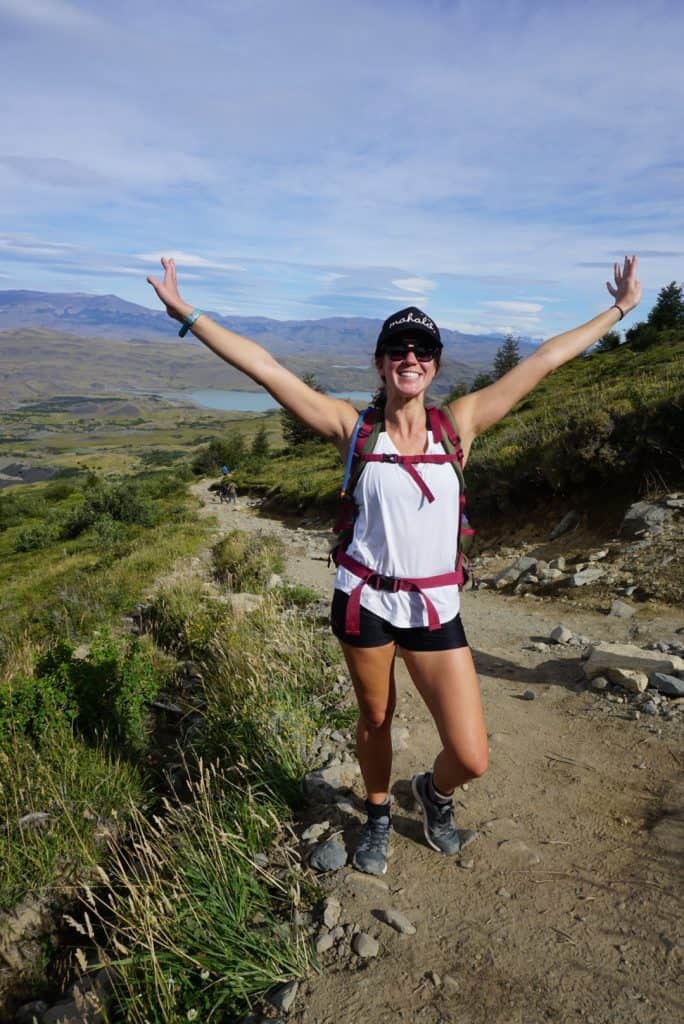
I first had the idea sitting on my couch on a very chilly night in 2014 in Chicago thinking “there’s got to be something better than this, I already work remotely for my clients most of the time even though they are in Chicago, why not work from outside Chicago, or outside the US” …. Google google google found Remote Year, applied, but my job wouldn’t let me go international. That obviously didn’t stop my thoughts on how I could do it in the future.
I wanted to nomad because I wanted to become more adaptable. I’ve perfected making a routine. I have no problem eating the same thing (ish) every day and exercising vigorously every day and setting high expectations for my productivity every day. A lot of that was to manage my anxiety. But I didn’t want my anxiety to run my life and prevent me from traveling the world and seeing the world. So what’s the best way to approach that? Head on! Take away all control and see what happens.
Nomading has changed my perspective on my life in that it has enabled me to take longer vacations and longer trips away from home. For example, after settling in Boulder, I went to Cape Town for 3 weeks for a final farewell with my Remote Year cohort.
Nomading has changed my perspective on life in general because it has shown me how amazing people are. The majority of the world is kind and giving and nurturing. I take comfort in that and commit to spreading that same kindness and nurture in my daily interactions either while nomading or in my settled community.
What caused you to stop nomading?
I covered most of this in my intro. In general, my body is sensitive to everything: pollen (so much pollen), small changes in the amount of sunlight I get each day, the quality of water I drink, the amount and quality of exercise I get each day, and temperatures (I overheat super easily). Given how sensitive my body is (damn you body, thank you body, but damn you body), after 2+ years of moving every 1-3 months, my body told me when I needed to stop traveling.
What advice would you give to someone who’s thinking about nomading?
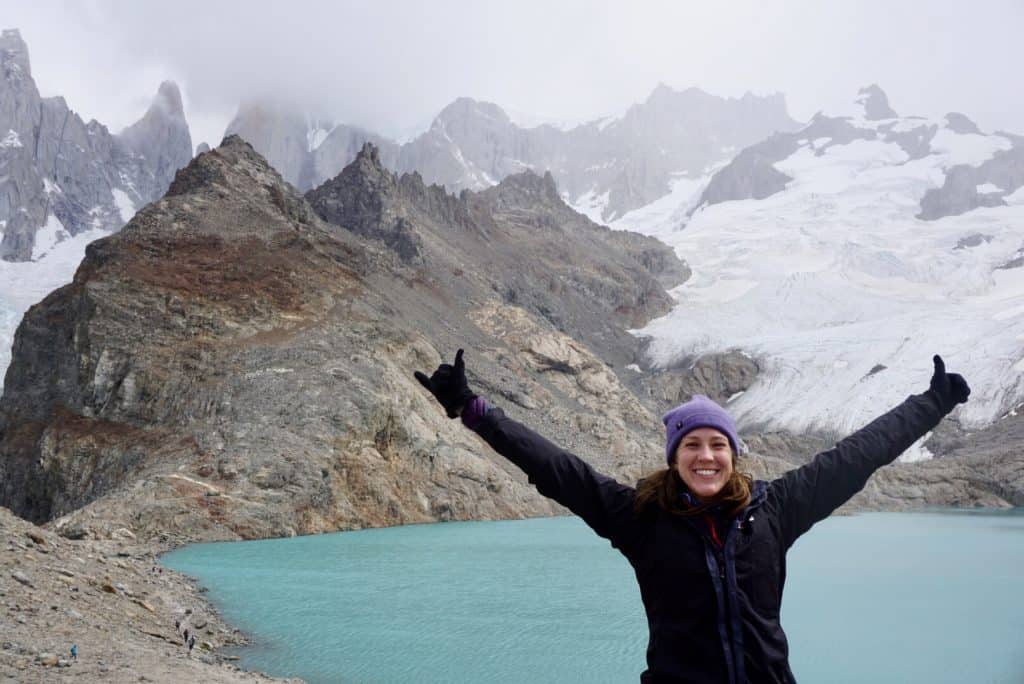
The hardest part is leaving home. You will find that after being gone for a year, nothing will have changed! NOTHING!
My biggest anxiety about traveling was about not having my precious routine. I combatted this by bringing my routine with me: hand coffee grinder, Aeropress, tiny smoothie maker (technically baby food maker but it makes my smoothies so whatever), travel TRX, travel yoga mat, resistance bands. I traveled with 1 full-sized suitcase + 1 30L backpack + 1 15L backpack. I do not consider myself a minimalist, I consider myself a keep-myself-sane-ist.
Finding an apartment and coworking space and grocery story and gym and the lot takes a lot of mental energy. Moving every month for me while working full-time was not realistic. When I was on my own moving every 2-3 months was more realistic.
Meeting people (in non-covid times) is pretty easy! I joined Facebook groups that were usually named Nomad (City Name) or Noman Women to find out about social or network events. I also usually tried to find a meetup hiking group or hash harriers group. Coworking spaces also make it really easy to meet people because they usually host social events – or you just meet the people sitting next to you.
Picking cities is such a personal thing. Since I was working full-time US hours I needed a larger city where it was easy to find a month to month lease and a coworking space and get around on foot, bike, or public transit. Some people may want the path less traveled – I just did not have the time for that unfortunately with my schedule. I also found that larger cities had larger nomad social networks. This Women Digital Nomads site was great for finding cities!
Please tell us your detailed story of how you got into your line of work and how you turned it into a remote career.
I studied Systems Engineering and Computer Science as an undergrad and pretty quickly found myself in the data-consultancy space. After spending 6 years there, I did not like that my resume and career were built around software like knowing Microsoft or Tableau or Qlik, etc, and I wanted to do more open source work.
I started working at Parse.ly because they build a Python oriented data product around open-sourced software and that’s the direction I wanted my career to go. I started working remotely domestically with my consultant job (I just needed to be near an airport, any airport), and then was hired remotely internationally by Parse.ly because their entire engineering team was already remote.
What does a day in your work life look like? Paint a picture for us :).
I usually work 8 hours/day: Find bugs and fix them; write documentation; hop on calls with customers to troubleshoot their code; hop on calls with potential customers to answer technical questions; get annoyed with a manual task and spend too much time automating it so I never have to do it manually again.
Although right now I’m pursuing my Masters in Applied Statistics so while I work those hours, I do a lot of night time work learning more special sauce.
For someone interested in getting into your field of work, what advice would you share? And what books, podcasts, thought leaders or other learning resources do you recommend?
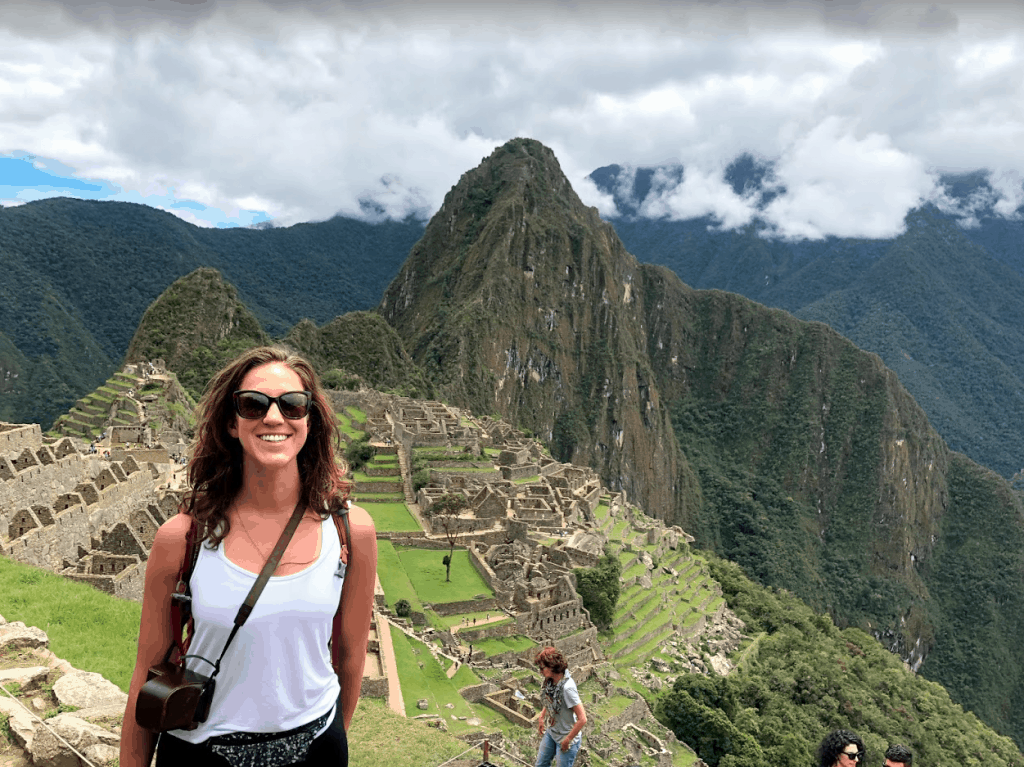
For career advice, I highly recommend finding a mentor in your field. I personally spend a significant amount of time mentoring recent grads and people just starting their careers and I love it – I’m happy to give that time. So as you attend networking events, or even now, joining slack channels that are in your field (ie. Women Who Code Colorado for me right now), do not hesitate to ask someone to buy them a cup of coffee (or for a Zoom call) to ask about their experience in something specific that you are interested in. Sometimes these groups have formal mentor/mentee programs with an expected monthly meetup.
As for resources, I recommend Andrew Ng’s Machine Learning and Deep Learning Coursera courses.
What digital tools do you use for your work?
Slack, Zoom, Chorus, Discord, Notion, Github
What are the most important life lessons that you’ve learned?
Nurturing relationships in life is the first thing that comes to mind. Our families, partners, friends, and colleagues provide meaning to our lives, and, if we truly pay attention, facilitate self-improvement more than any book or yoga class ever could.
Instead of measuring happiness, I prefer to measure satisfaction, like after a perfect meal satisfaction or an amazing bike ride satisfaction. While a base level of happiness is needed, maximum happiness doesn’t exist, because it’s infinite! Satisfaction is measurable and fleeting: it is being in the moment, it is appreciation, gratitude, and contentedness. Now that is achievable!
What are the 2-3 favorite places where you’ve lived/traveled to and why?
Berlin – easy city living for working remotely and proximity to all of Europe
Bogota – easy city living for working remotely and proximity to mountains and all of South America
Patagonia – because Patagonia – because there’s limited internet and beautiful nature
What’s the best purchase you’ve made under $100 in the last 12 months?
A compact crank for my road bike. Makes getting up massive inclines just a bit better 🙂
How can people learn more about you and your work?
I really don’t share much on social media but maybe GitHub https://github.com/rachelannelise


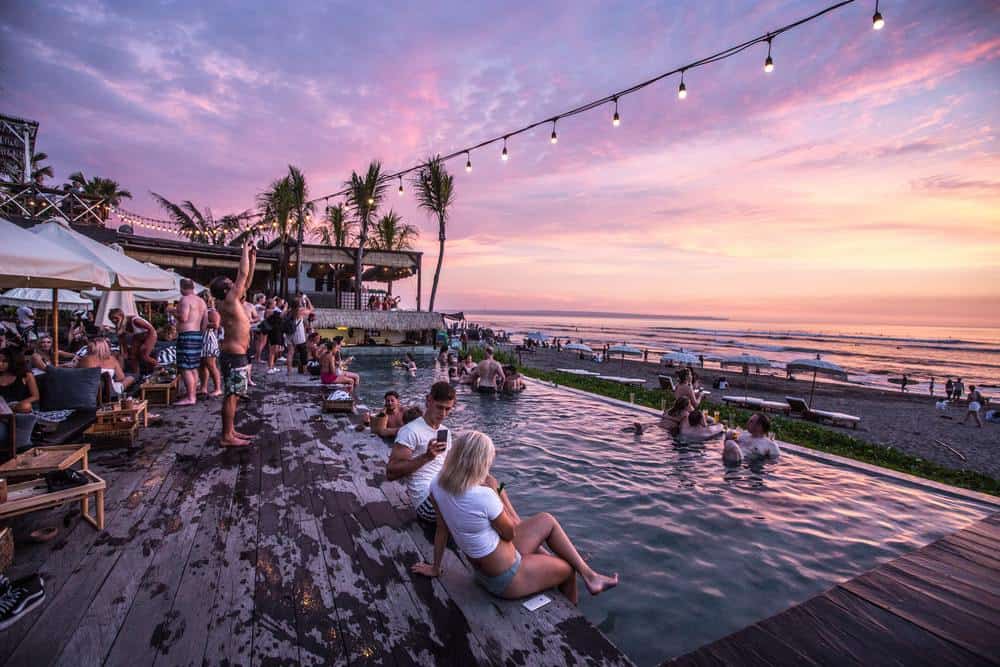
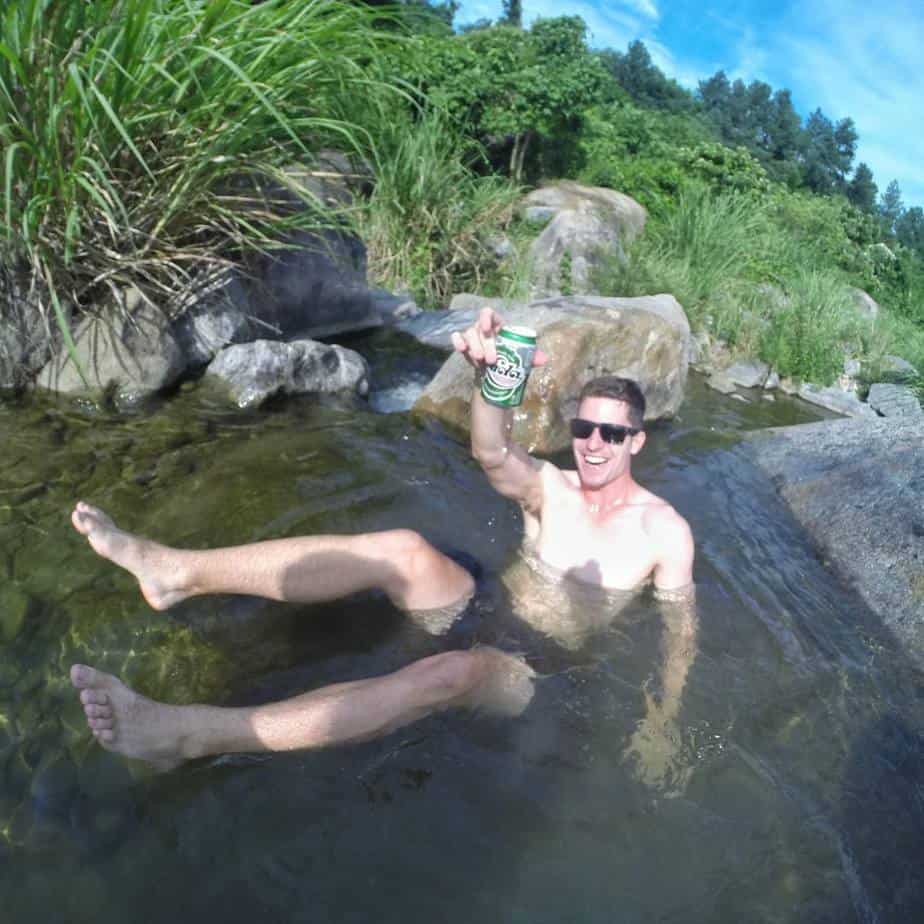
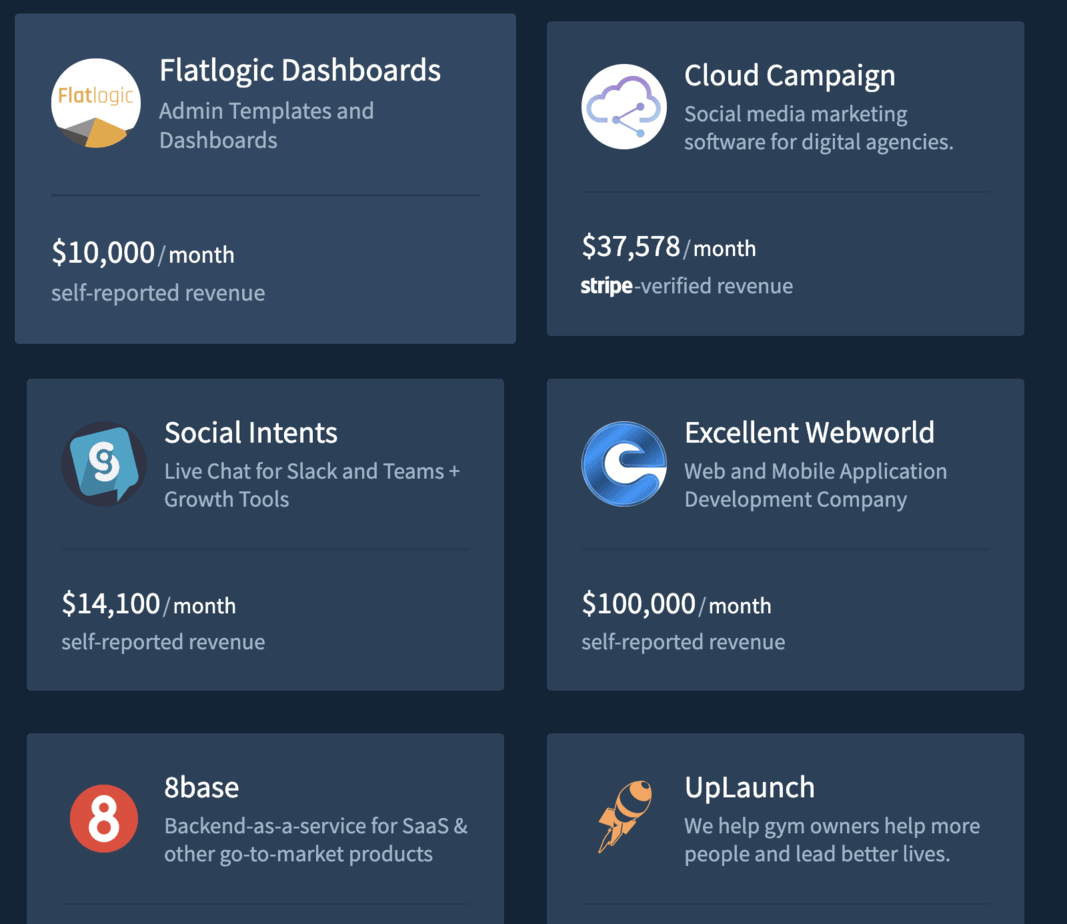
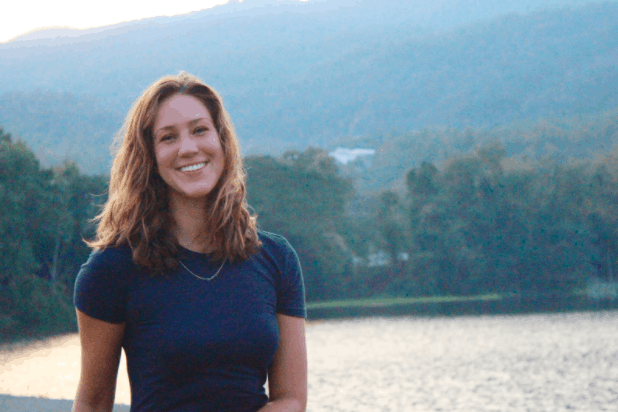
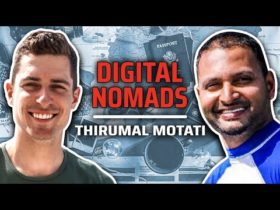
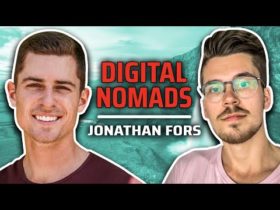
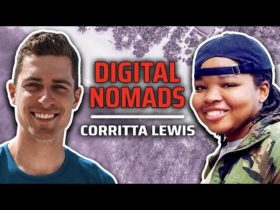
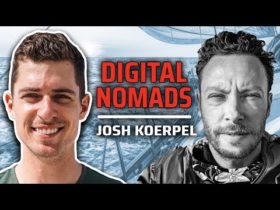
Leave a Reply
View Comments